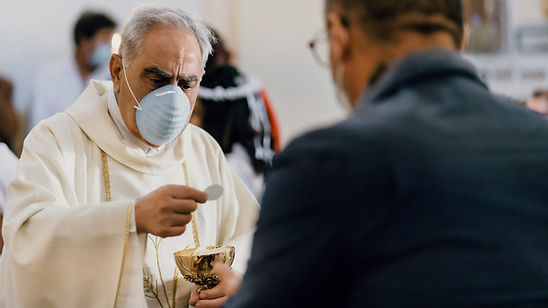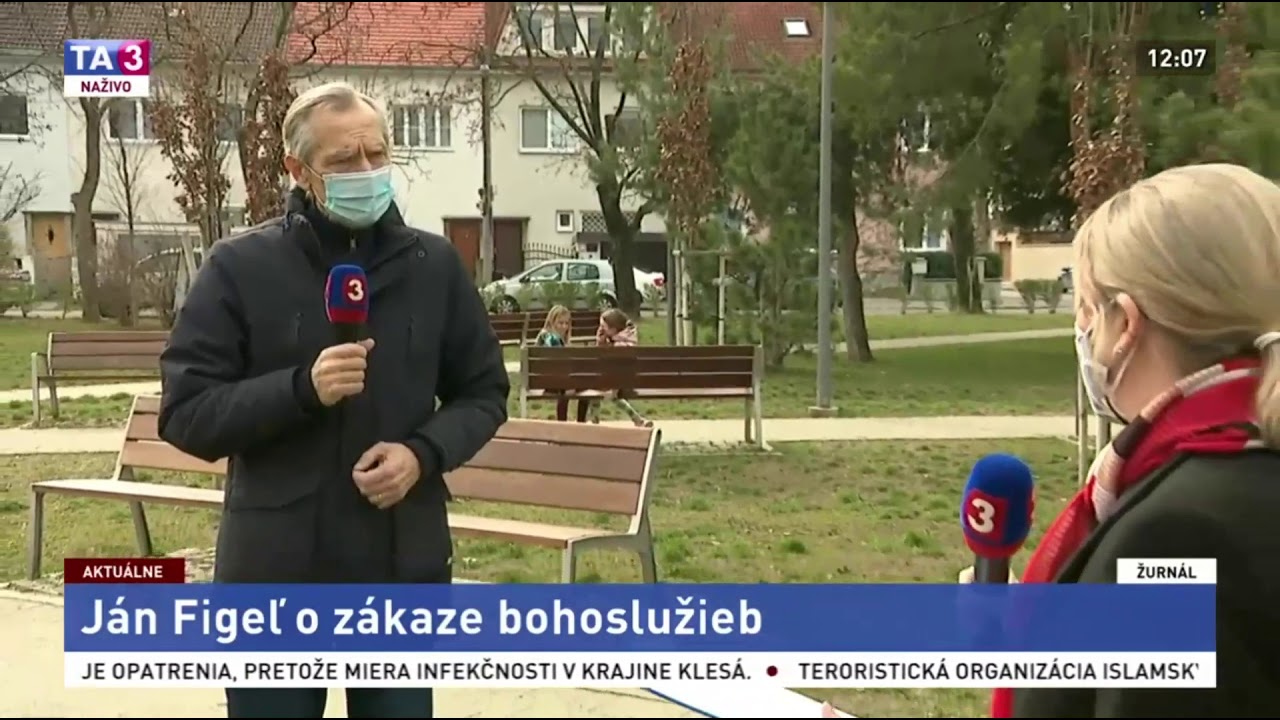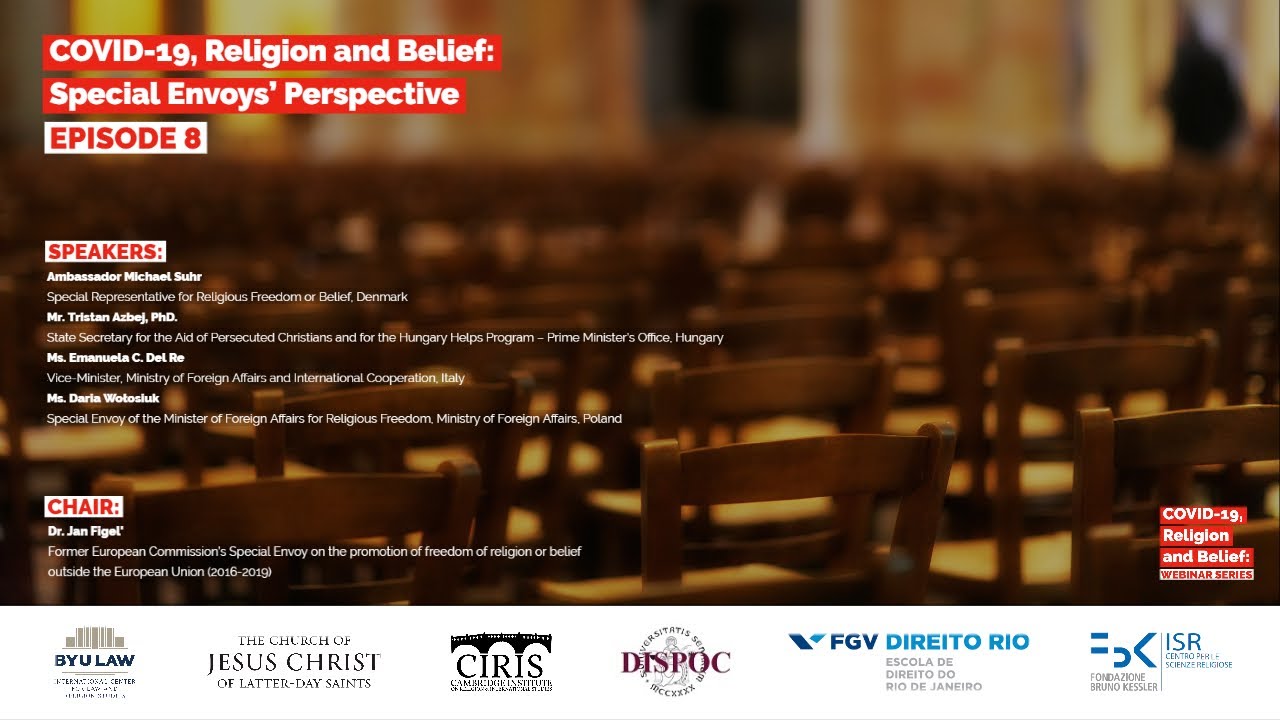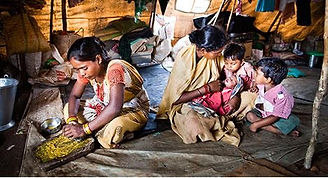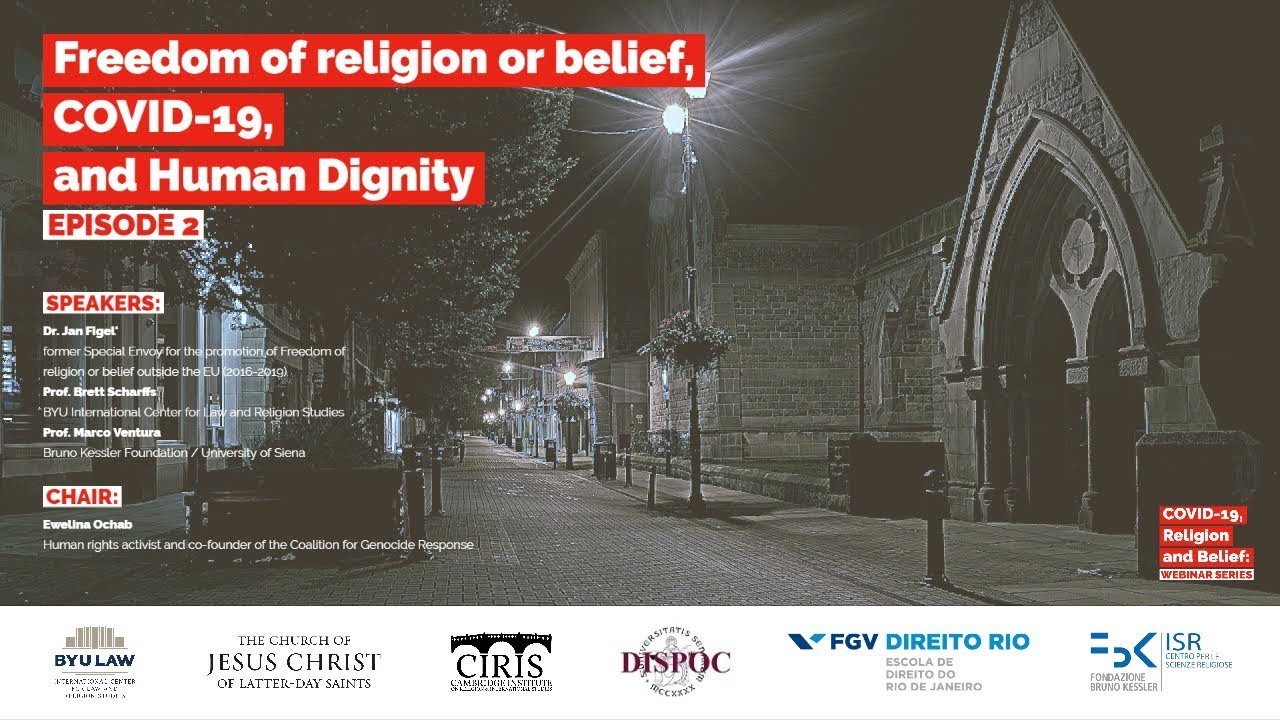Tag: Covid-19
-
Ján Figeľ challenges COVID-19 worship bans at Top Court
Dr. Ján Figeľ is a long-serving EU official and was Special Envoy for Freedom of Religion or Belief outside the EU from 2016 to 2019. He is seeking to defend freedom of religion in his home country and has submitted an application to the European Court of Human Rights on the issue of religious freedom
-
Figel’ v Slovakia: Potential landmark ECtHR decision on COVID-19 related restrictions to FoRB
The COVID-19 pandemic introduced a period of unprecedented restrictions to fundamental rights, unthinkable no less than five years ago: freedom of movement, assembly, and expression, and the right to private life, among others, were all impacted. Freedom of religion or belief (FoRB) was no exception. In the name of public health, governments all around the
-
Relácia „Tak takto?!“ s Jánom Figeľom na TA3
Pred veľkonočnými sviatkami vláda uvoľnila opatrenia a umožnila individuálne návštevy kostolov. Neznamená to však, že sa budú môcť konať bohoslužby. Núdzový stav a obmedzenia s ním spojené napadol na Ústavnom súde aj generálny prokurátor Maroš Žilinka. O téme sme hovorili s bývalým eurokomisárom pre školstvo a kultúru Jánom Figeľom. Rozhovor o protiústavnosti zákazu verejných bohoslužieb,
-
Ján Figeľ o zákaze bohoslužieb na TA3
Bývalý predseda KDH Ján Figeľ žiada vládu, aby upravila pravidlá COVID automatu. Chce, aby sa zachovalo právo občanov na uplatňovanie slobody náboženského vyznania. S Figeľom sa rozprávala Barbara Štefanovičová. Odvysielané: 4.3.2021
-
COVID-19, Religion and Belief: Special Envoys’ Perspective
The following questions were addressed: Thursday, 28 May 2020 at 3:00 PM CEST https://spark.adobe.com/page/4vSJTeJhUd96y/#ep-8-covid-19-religion-and-belief-special-envoys-perspective
-
COVID-19 Crisis, Human Dignity and Freedom of Religion or Belief
The theme I wish to explore briefly is the relation between human dignity, religious freedom and current corona virus pandemic. Evidently, medical situation in the world is critical in many countries. It will take time and make serious impact on economies, on social situation and on human, interpersonal and international relations. Our world will change.
-
Covid-19, Religion and Belief: Webinar Series – Episode 2
This Conversation was developed from contributions to an international Webinar held 16 April 2010: Freedom of Religion or Belief, COVID-19 and Human Dignity , Episode 2 of the Webinar Series COVID-19 and Freedom of Religion or Belief. Panelists in this Webinar addressed the following and other questions: How is this global emergency affecting our concept

